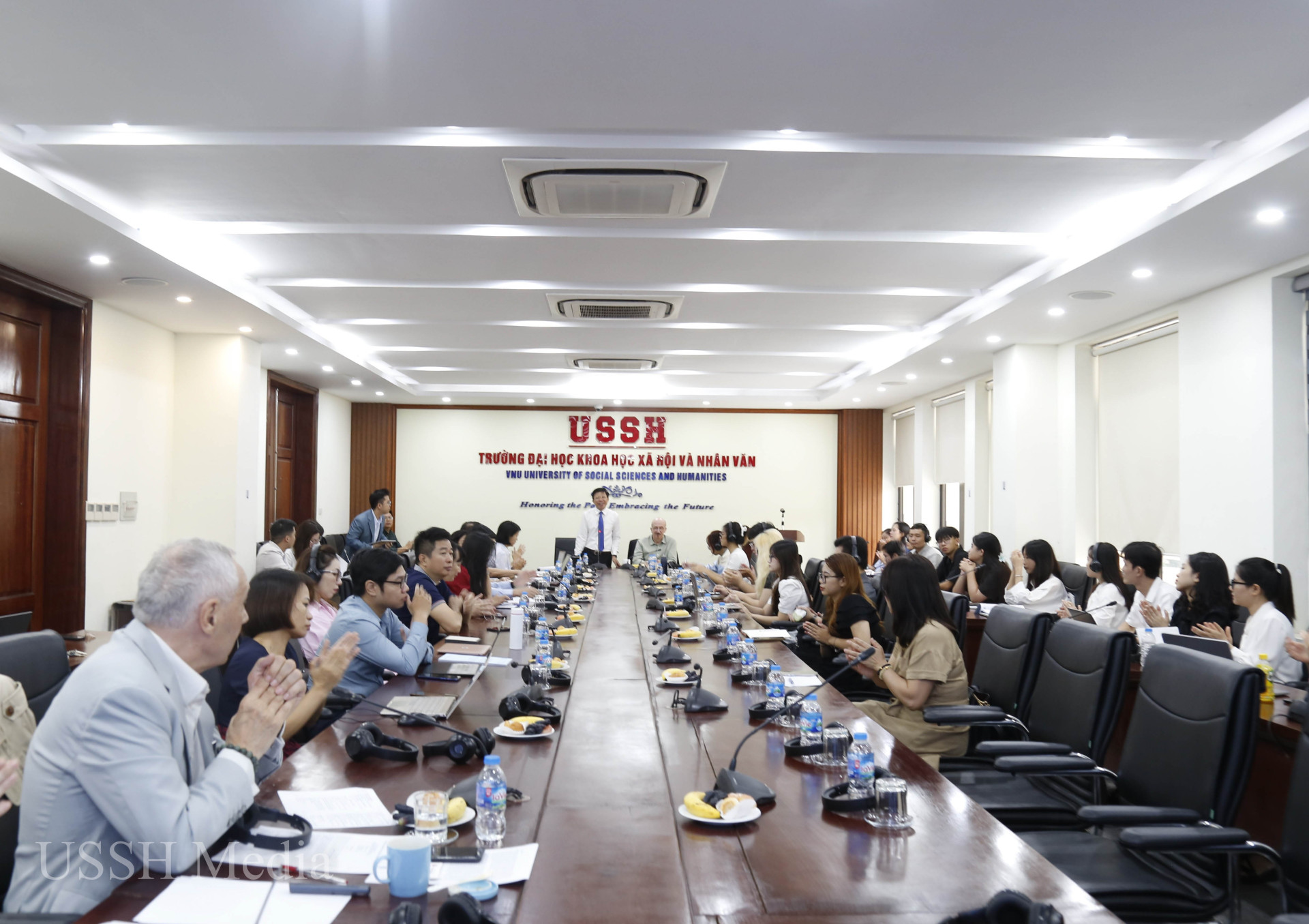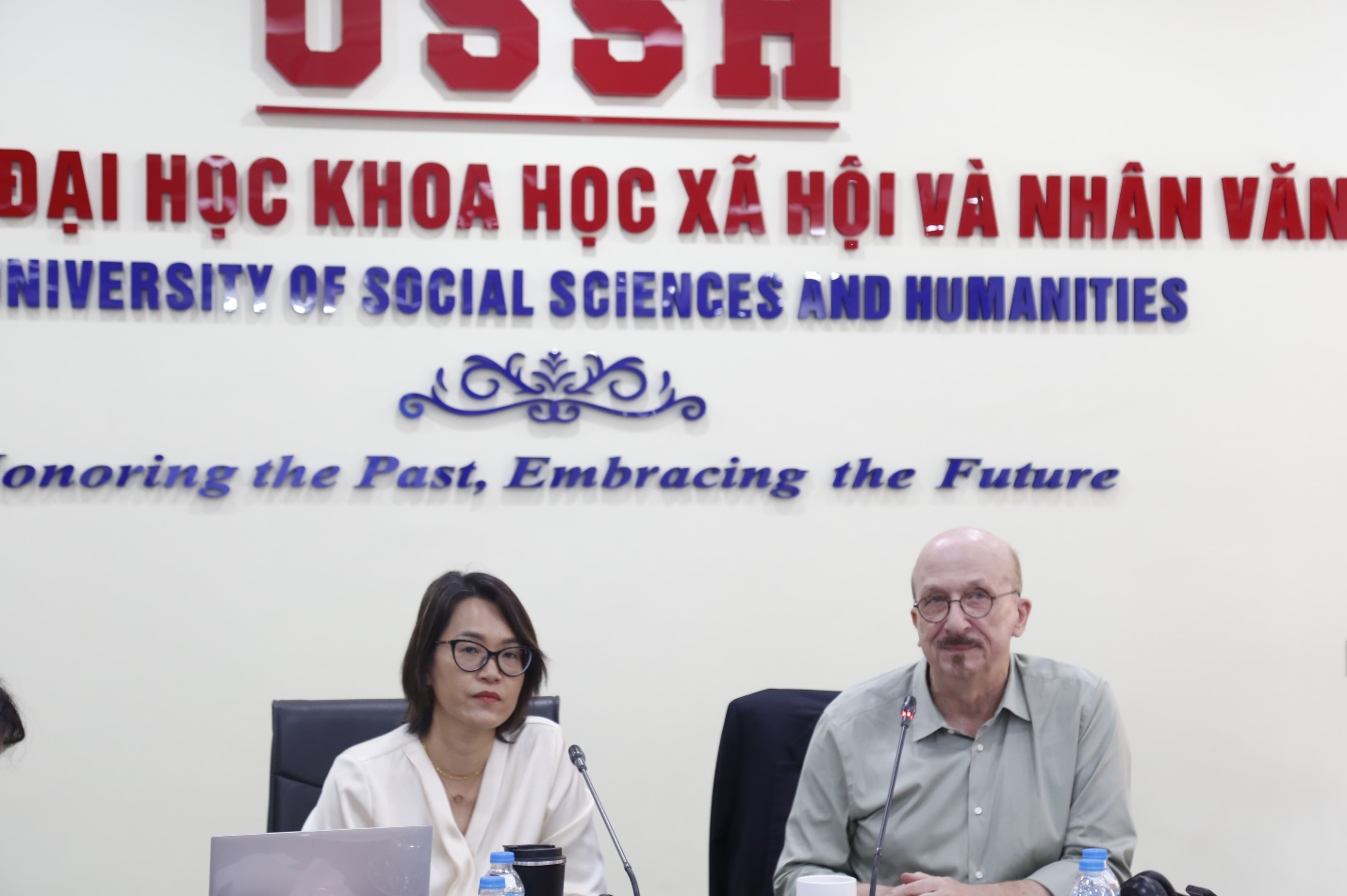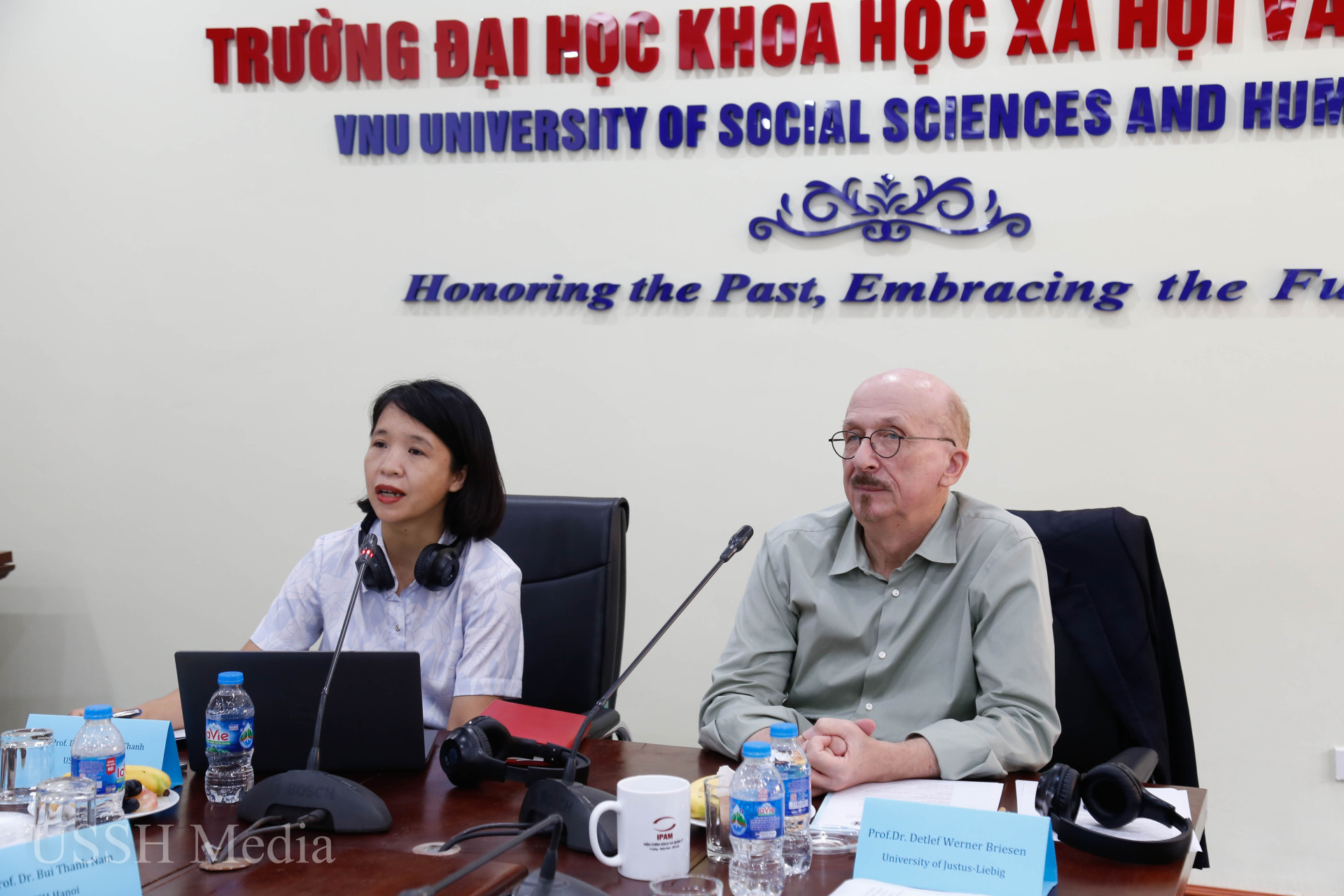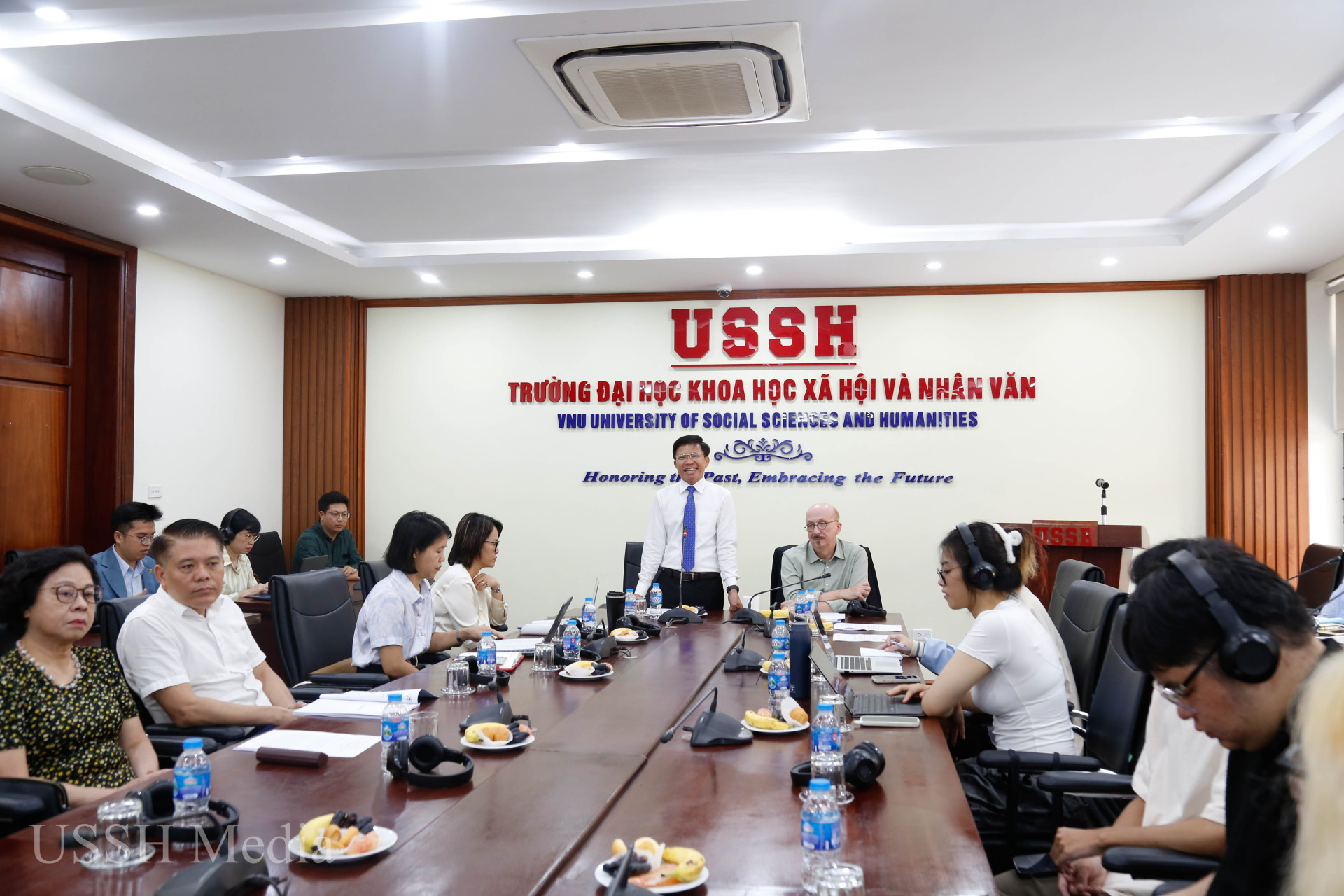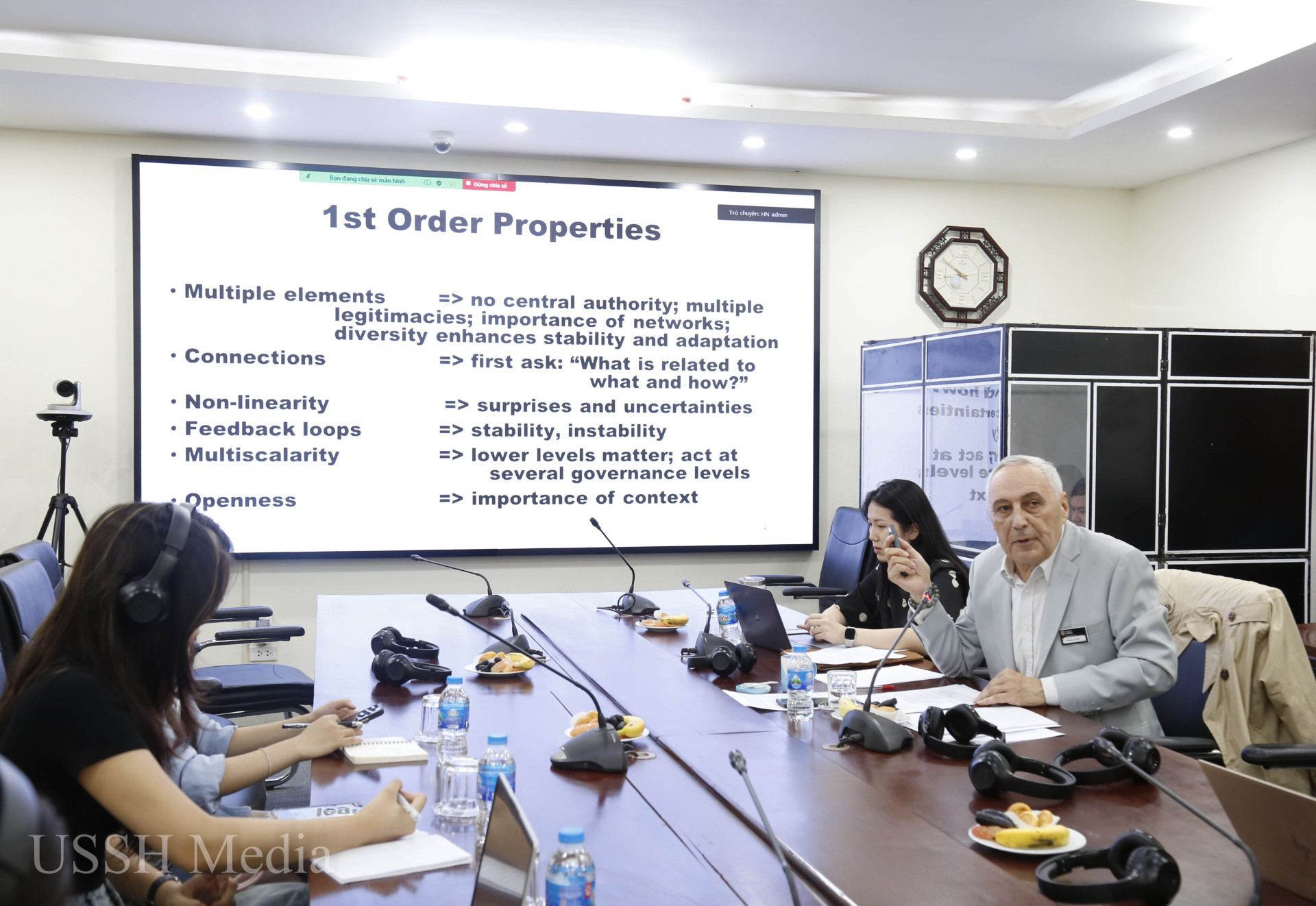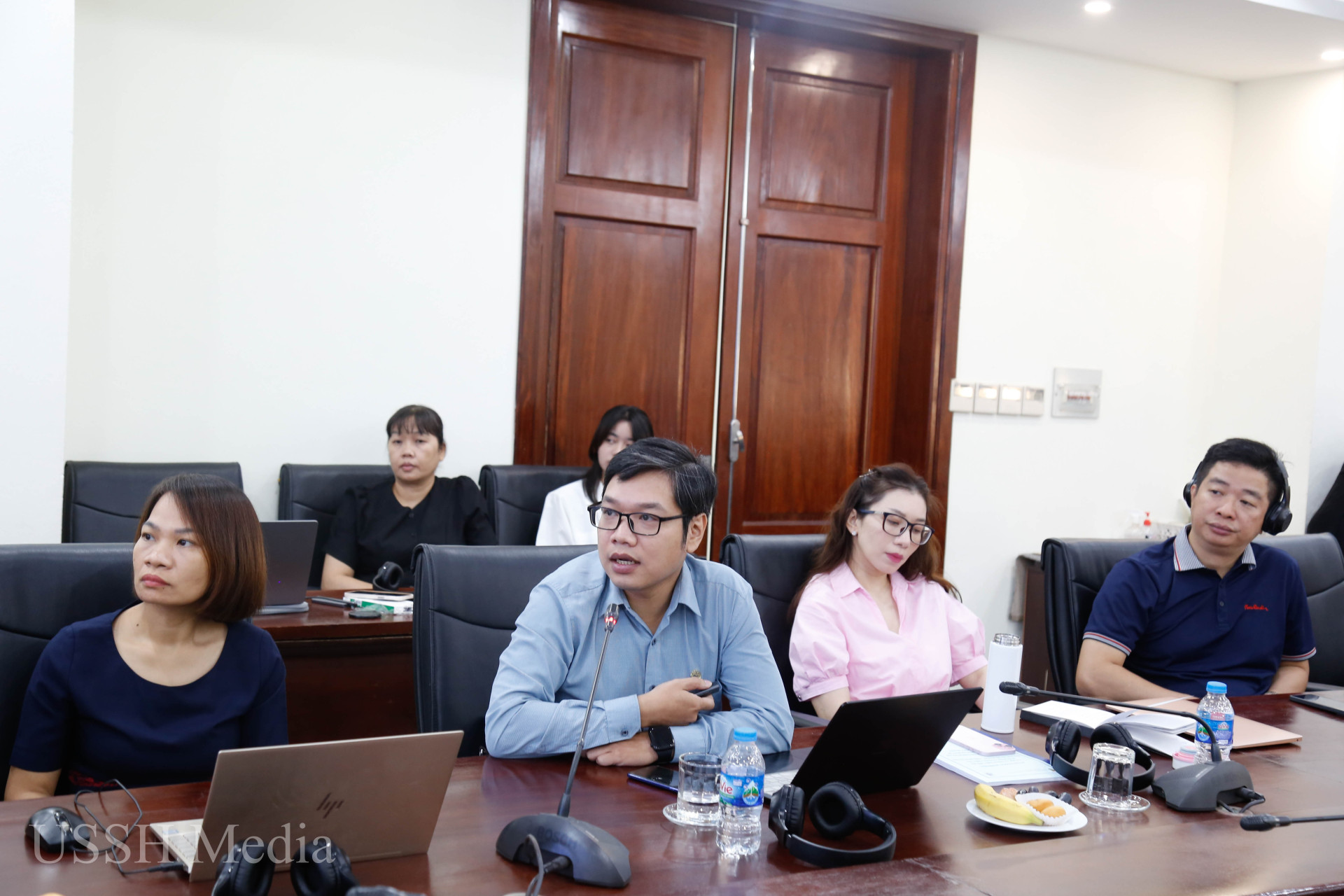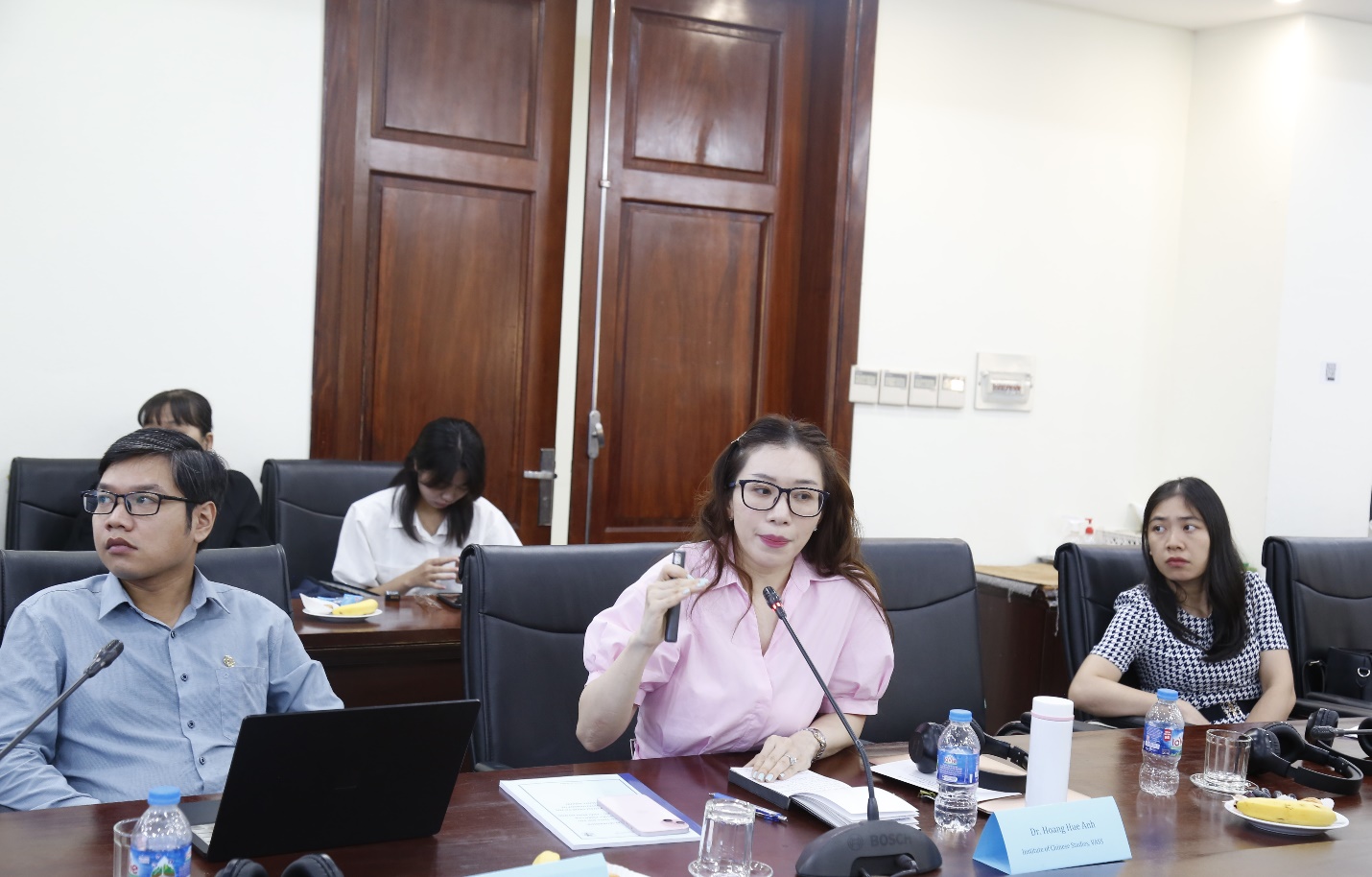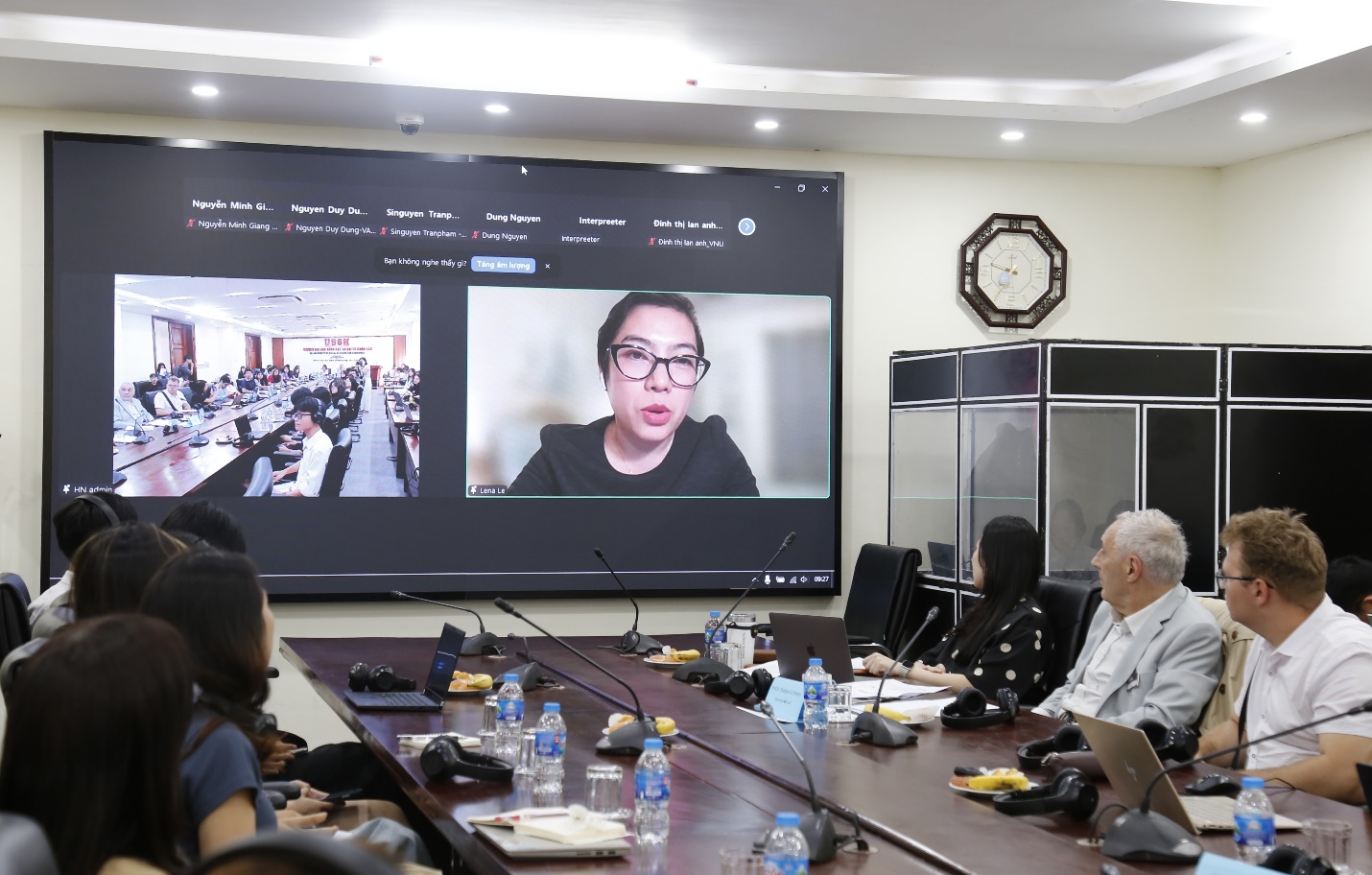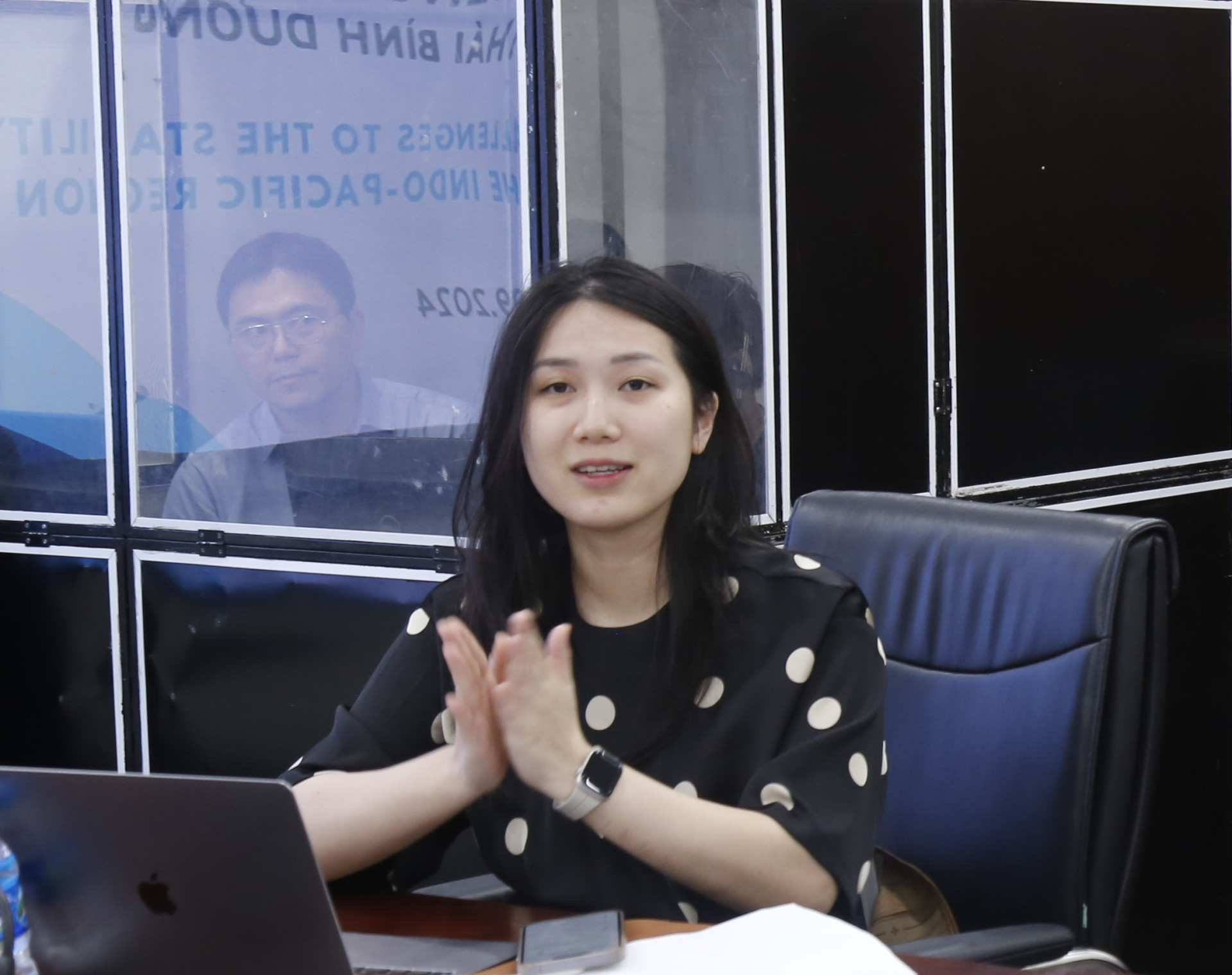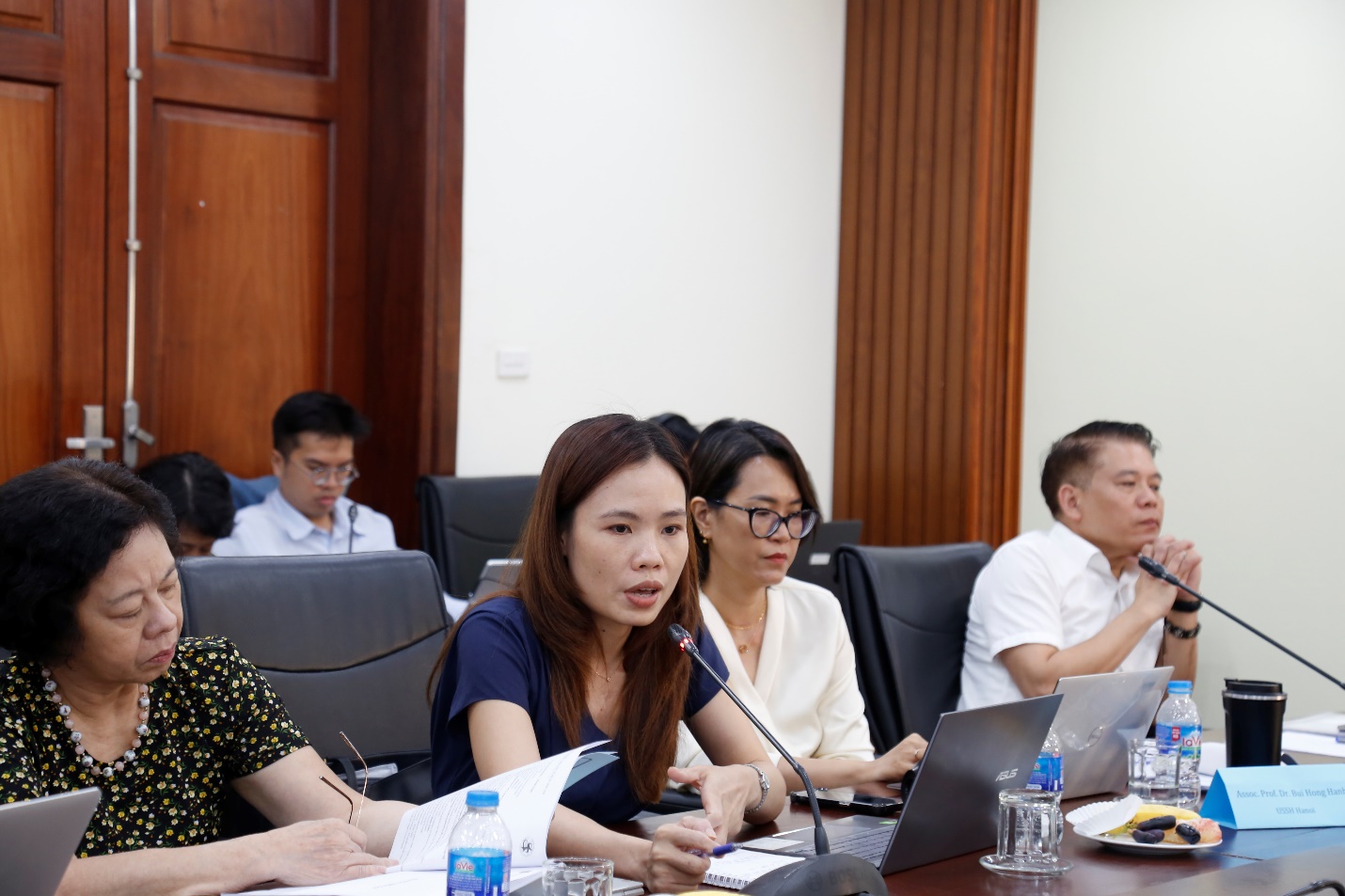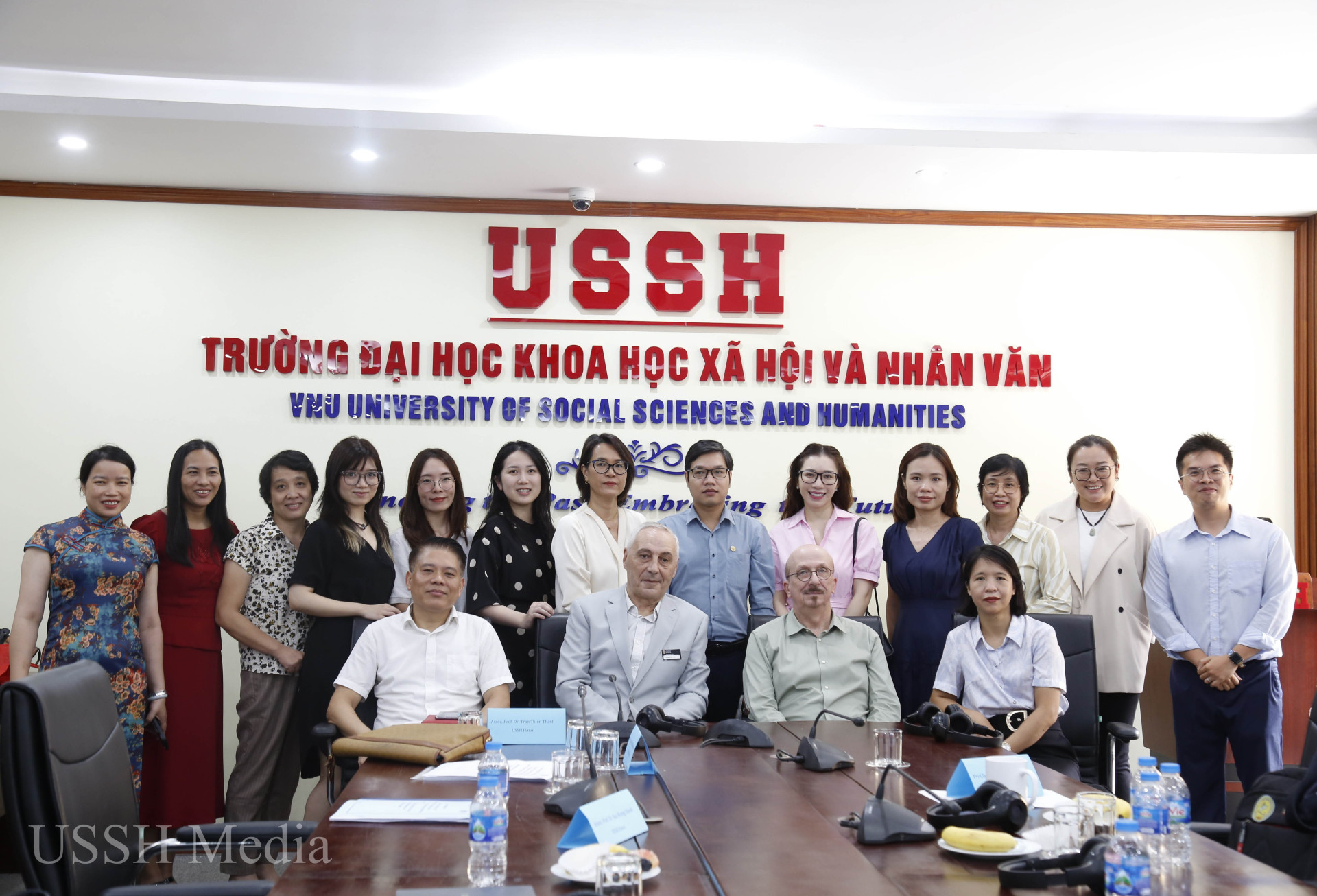The conference attracted a large number of scholars from both within and outside the country, participating both in person and online.
Overview of the Conference
Session 1 of the Workshop was chaired by Prof. Dr. Detlef Werner Briesen, Justus-Liebig University (Germany) and Assoc. Prof. Dr. Bui Hong Hanh (Lecturer, Faculty of International Studies, VNU-USSH).
Session 1 of the Workshop was chaired by Prof. Dr. Detlef Werner Briesen, Justus-Liebig University (Germany) and Assoc. Prof. Dr. Tran Thien Thanh (Head of the Department of International Studies, VNU-USSH).
Speaking at the opening of the conference, Professor Hoang Anh Tuan (Rector of the University of Social Sciences and Humanities) expressed his deep gratitude to the scholars who showed interest in attending and contributing papers to the conference. He emphasized the importance of the Indo-Pacific region, not only economically but also geopolitically. With 60% of the world's population and the presence of major economies such as the United States, China, Japan, India, and ASEAN countries, this region is a crucial center of global interaction.
However, this region also has an extremely complex geopolitical situation and power struggles among major powers. It also faces a range of transnational issues such as environmental degradation, climate change, epidemics, and piracy. These challenges have the potential to cause instability and escalate into regional conflicts or crises.
With that in mind, Rector Hoang Anh Tuan believes that the conference is an opportunity for scholars to share their perspectives on the current situation in the Indo-Pacific region, the opportunities and challenges for the region's stability and development, and the policies and strategies chosen by countries in the region in their regional integration and cooperation. Through this, relevant policies can be suggested to help Vietnam overcome challenges and maximize existing opportunities in the region for stability and development.
Professor Hoang Anh Tuan delivered the opening remarks, affirming the scientific and practical significance of the conference in research on the field of international relations.
In addition to the opening session, the conference will include two main discussion sessions:
Session 1: The Strategic Context in the Indo-Pacific Region from a Theoretical Perspective
Session 2: The involvement of major powers in the developing Indo-Pacific region.
Based on the presentations and speeches at the conference, scholars unanimously agreed that the stability and development of the Indo-Pacific region are currently governed by many complex, intertwined, and mutually influencing factors.
According to Professor Philippe Le Prestre of Laval University (Québec, Canada), these factors need to be considered from the perspective of complexity theory, that is, “considering multiple agents simultaneously, operating at different spatial or functional scales, participating in interactions in nonlinear and network patterns, and exhibiting unique dynamics, i.e., both stable and unstable dynamics, promoting or hindering.”
Professor Philippe Le Prestre presented his paper at the conference.
Based on abundant and reliable sources of information on the economic, political, military, and security situation, as well as alliances, cooperation, competition, and conflicts in the Indo-Pacific region, a research team from the Institute of World Economics and Politics has presented an analysis showing the need to develop a comprehensive index of international cooperation and conflict. “Developing comprehensive indices based on all variables related to cooperation and conflict (such as economic, diplomatic, and military cooperation; territorial disputes, military confrontations, conflicts, diplomatic and economic sanctions) will help us not only measure the current state of international relations but also provide a framework for predicting future cooperation or conflict,” shared Dr. Nghiem Tuan Hung.
Dr. Nghiem Xuan Hung (Institute of World Economics and Politics, Vietnam Academy of Social Sciences) presented a paper at the conference.
In the second session of the conference, scholars focused on clarifying the shifts in the strategies of major powers regarding this region, particularly the US and China, and their impact on the overall economic and security situation of the region, as well as on individual countries, including Vietnam.
Based on an analysis of the strategies and specific action programs of the two superpowers, the United States and China, regarding the Indo-Pacific region, Associate Professor Bui Thanh Nam (VNU-USSH) and Dr. Hoang Hue Anh (Institute of Chinese Studies) affirmed that this region holds special importance in the economic, political, and military development strategies, increasing the influence of both countries not only within the region but also globally. This creates many opportunities (promoting the formation and establishment of a vast regional economic and trade network, increasing investment) but also brings with it numerous challenges (typically security and military conflicts, territorial disputes, etc.). In this context, countries in the region, including Vietnam, need appropriate strategies to capitalize on opportunities and mitigate challenges, strengthening their role in promoting peace, stability, and friendly cooperation in the region.
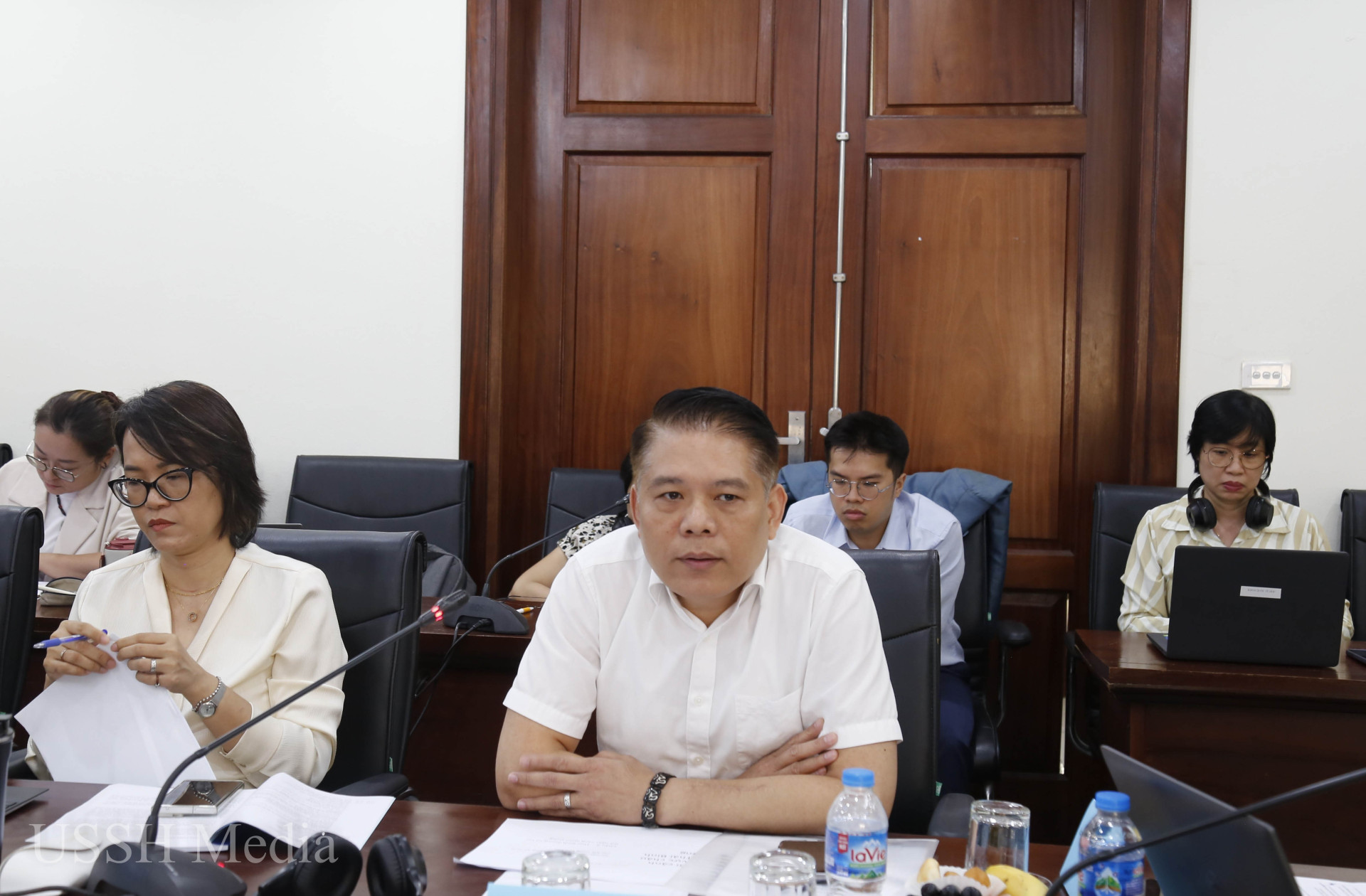
Associate Professor Bui Thanh Nam presented a paper entitled: "Implementing the US Indo-Pacific Strategy: New Developments and Prospects"
Dr. Hoang Hue Anh presented a paper entitled: "China's Strategy in the Indo-Pacific: Opportunities and Challenges"
The presentations at the conference attracted considerable attention from scholars, with insightful comments. Besides expressing agreement with the research findings and assessments presented, the comments also raised several questions to further clarify issues related to the greatest opportunities and challenges for regional stability and development, and the prospects for cooperation between major powers and developing countries to address global issues such as climate change.
Dr. Le Lena (sharing online) argues that when constructing a composite index to assess trends in cooperation or conflict, attention should not only be paid to variables related to hard power, but also to soft power factors such as culture.
Dr. Vu Van Anh (Faculty of International Studies – VNU-USSH) argues that when forecasting future scenarios for this region, it is necessary to carefully consider the intertwined and complex factors: conflict can be accompanied by cooperation, and cooperation can also harbor elements of conflict.
Dr. Nguyen Thuy Trang (Faculty of International Studies – VNU) suggested that, based on an in-depth analysis of the Indo-Pacific strategies of the United States and China, the authors could expand their research to include the roles of other countries in the stability and development of the region.
In addition to the five presentations and numerous direct exchanges of opinions at the Conference, the Organizing Committee also received papers from nearly 30 researchers both domestically and internationally. After the conference concludes, these papers will be edited and published in the Conference Proceedings at the earliest opportunity.
